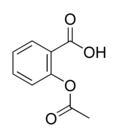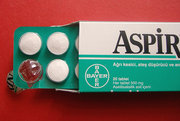Clinical Question: Does aspirin prevent cardiovascular disease in women?
Setting: Population-based
Study Design: Randomized controlled trial (double-blinded)
Allocation: Uncertain
Synopsis: Most of the data on the use of aspirin for the prevention of cardiovascular events come from studies in men. The current study represents the largest and best evidence to date for women. Women older than 45 years without a history of coronary artery disease, cerebrovascular disease, or cancer were initially enrolled in a three-month placebo run-in period to establish compliance with the study protocol. Women who complied throughout the run-in period (n = 39,876) were randomized to receive 100 mg of aspirin daily or matching placebo. They were followed for a mean of 10 years, with 97 percent complete data on morbidity and 99 percent complete data on mortality.
The mean age of participants was 55 years, and the 10-year risk of heart disease was less than 5 percent in 85 percent of the women. Groups were balanced at the start of the study, outcomes were assessed blindly, and analysis was by intention to treat. Women taking aspirin were less likely to have a stroke (1.1 versus 1.3 percent; P = .04; number needed to treat [NNT] = 444 for 10 years) or transient ischemic attack (0.9 versus 1.2 percent; P = .01; NNT = 384 for 10 years) than women taking placebo. However, there were no differences between groups in the likelihood of myocardial infarction (0.99 percent for aspirin and 0.97 percent for placebo) or death from cardiovascular causes (0.60 versus 0.63 percent), any major cardiovascular event (2.4 versus 2.6 percent), or death from any cause (3.1 versus 3.2 percent). Gastrointestinal bleeds requiring transfusion were more common in the aspirin group (0.64 versus 0.46 percent; P = .02; number needed to treat to harm [NNH] = 553 for 10 years).
The study was powered to have an 86 percent chance to detect a 25 percent reduction in the primary outcome of any major cardiovascular event. Review of the survival curve reveals a steady but small trend in favor of aspirin regarding the primary outcome. This apparent benefit, equivalent to a 5 to 10 percent relative reduction in the rate of all-cause mortality, was not statistically significant despite the large size of the study.
Bottom Line: Aspirin reduces the risk of stroke and transient ischemic attack in women, but does not reduce the risk of myocardial infarction or cardiovascular death. The reduction in strokes over 10 years (NNT = 444) must be balanced against an increase in serious gastrointestinal bleeding (NNH = 553). No change regarding all-cause mortality was seen in this large, long study. (Level of Evidence: 1b)
Study Reference: Ridker PM, et al. A randomized trial of low-dose aspirin in the primary prevention of cardiovascular disease in women. N Engl J Med March 31, 2005;352:1293-304.
Used with permission from Ebell M. ASA prevents stroke, not MI, in women. Accessed online June 1, 2005, at: http://www.InfoPOEMs.com.
COPYRIGHT 2005 American Academy of Family Physicians
COPYRIGHT 2005 Gale Group




